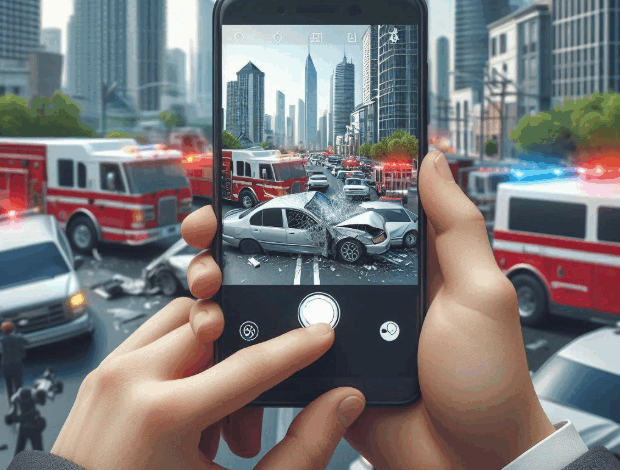
Picture the fast pace of downtown Chicago, with its honking taxis and crowded ERs. Handling accident claims here is anything but simple. This kind of chaos is common in big cities across the country.
Now, new technology is changing the game behind the scenes. Digital tools, like cloud-based medical records and artificial intelligence, are speeding up the process and bringing more fairness to legal claims.
Let’s look at the innovations reshaping wrongful death and accident cases nationwide.
1. Electronic Medical Records Integration
Chicago’s hospitals, like many big-city giants, now connect seamlessly through electronic medical records. When someone is rushed in after an accident, every scan and doctor’s note gets digitized for sharing.
That digital paper trail is gold for attorneys.
Quick access to charts means cases for compensation move less like a sluggish Lake Shore Drive traffic jam and more like the Blue Line at full speed.
2. Predictive Analytics for Case Outcomes
Insurers and injury lawyers now use software to estimate future costs and settlement amounts. These predictive analytics crunch data from thousands of Chicago car accidents and similar cases across the country, helping everyone land on fair numbers.
For example:
- Predicting long-term rehab expenses for serious injuries
- Estimating lost wages using details like age, job, and location
- Calculating reasonable costs for unexpected expenses
This technology is now making a real difference when it comes to securing fair compensation, especially for families dealing with funeral and burial expenses after an accident in Chicago or any other major city.
Pro Tip: Snap photos of damage at the accident scene, if possible. Gather names and contacts for any witnesses. These details may seem small in the moment, but they become powerful proof if you ever need to file a legal claim later on.
3. Blockchain for Tamper-Proof Records
Say goodbye to missing signatures and “lost” files.
Blockchain tech lets hospitals and insurers share accident data in a way that locks every change into a permanent log. It’s already making waves in legal circles and was recently piloted with Chicago’s large trauma networks.
This tech translates to less finger-pointing and quicker, fairer settlements.
4. Insurance Settlements: Tech Steps Up
Healthcare technology is no longer just for doctors and nurses. Here’s a look at how it’s reshaping compensation for accident victims and their families, right down to the hard details like funeral costs.
- Digital Claims Filing: No more stacks of paper forms. Digital portals let families or attorneys submit claims for ambulance costs, medical bills, and even funeral or burial expenses. All of this from the convenience of a smartphone.
- Smart Document Sorting: AI can scan medical records, death certificates, and police reports, sorting them in seconds for legal review.
- Fast-Track Payments: Apps help process rightful payments to hospitals or grieving families, which means less waiting when relief is most needed.
The Legal Scene: What’s Actually Changing?
AI-Powered Injury Assessments
Lawyers from Chicago to Los Angeles are using AI to quickly scan medical records and images.
These tools suggest likely outcomes for broken bones, burn injuries, and more. They flag complicated situations for more review.
This is a great equalizer for smaller law offices and solo attorneys.
Telehealth’s Legal Evidence Boost
After the pandemic, telehealth exploded across Illinois and every state. Accident victims can now get virtual doctor visits.
These appointments create fresh medical records that are court-ready and timestamped. They strengthen cases for ongoing care, rehab needs, and even wrongful death compensation; no matter where you live.
The Future of Fairness and Speed Is Here
These innovations do more than update old systems. They bring reliable evidence to legal battles, speed up vital payments, and help deliver settlements based on facts instead of flashy lawyering.
For families in tough situations, especially those dealing with unexpected funeral and burial expenses after an accident, these changes make a meaningful difference. What once took months or even years now happens almost in real time.
As healthcare and legal tech work hand in hand, especially in cities that respect both cutting edge progress and deep tradition, the process gets smoother for everyone involved.
The promise is simple but powerful: smarter claims, faster answers, and a fairer system for all. Welcome to the future of accident law.


